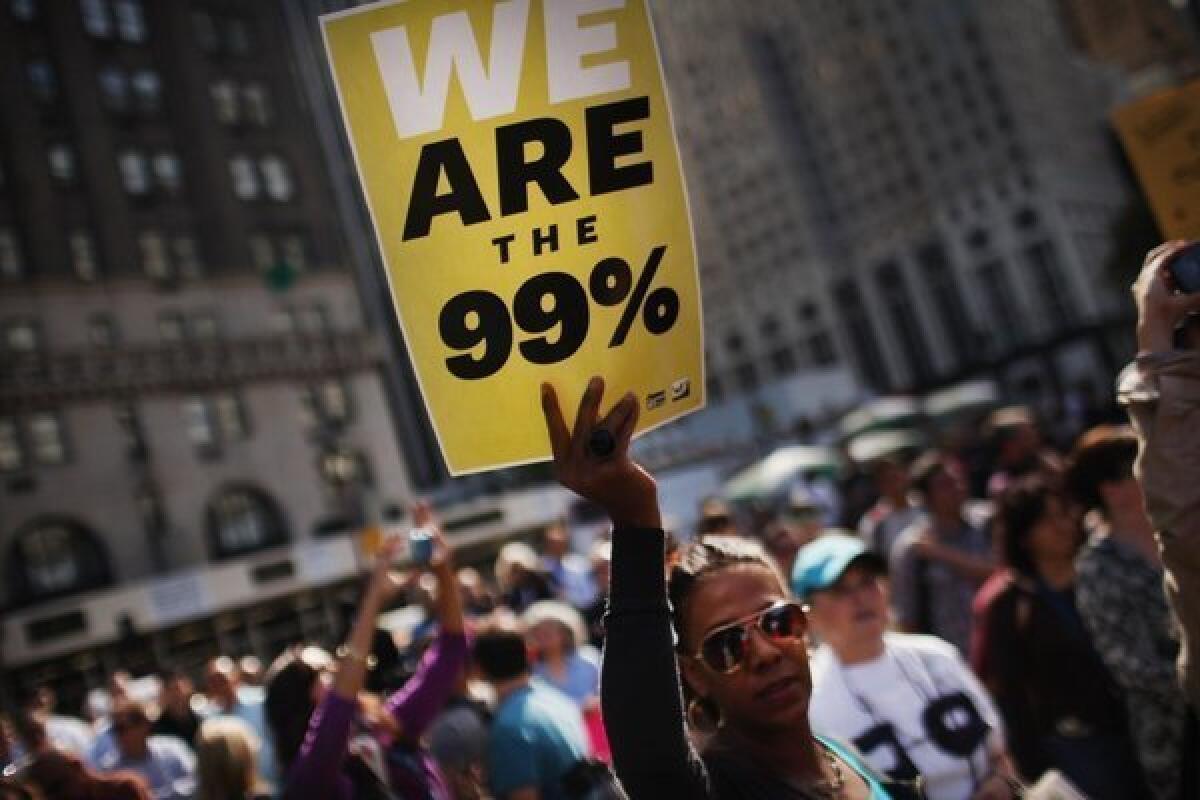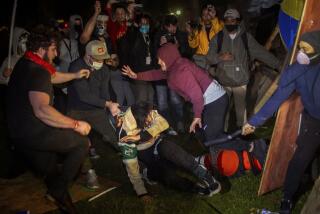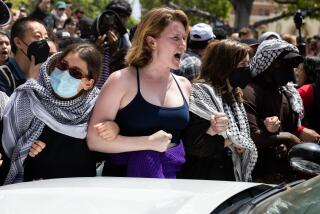Many Occupy protesters well-off, white and educated, study says

The 99% may have been a little above-average.
A sampling of Occupy Wall Street supporters in May showed that the anti-corporate protest movement was disproportionately wealthy and educated, according to a study published Tuesday by the City University of New York.
However, many protesters -- especially those younger than 30 -- had also been recently laid off and were saddled with debt, one of the signature issues of the movement. Participants were predominantly concerned about income inequality in the United States.
The study -- called “Changing The Subject: A Bottom-Up Account of Occupy Wall Street in New York City” -- tendered the history, context and sociology of the Occupy movement from where it appeared to have begun, in New York.
In reality, the report’s authors wrote -- citing interviews with participants -- the movement had its roots in national and international politics, from Tahrir Square in Cairo to Syntagma Square in Athens and to the statehouse in Madison, Wis., where weeks of pro-labor protests electrified participants who would later descend on a much lesser-known public space in New York City, called Zuccotti Park.
There, in the shadow of Wall Street, protesters gathered for two months until driven out by police in a nighttime raid, but not before the movement’s tentpole leftist angst and leaderless structure had duplicated itself in urban centers all over the United States under the slogan, “We Are The 99%.”
The report included a survey of 729 people who attended a May 1 rally at Manhattan’s Union Square and a subsequent march on Wall Street; 405 participants said they were “actively involved” in the Occupy movement.
Of those sampled, the report said that more than 35% of participants made more than $100,000 a year; by contrast, an average of 24% of New York City residents make that much per year.
Respondents younger than 30 were much more likely to hold more than $1,000 in student debt (54%) and to have been laid off (37%) or evicted from an apartment (9%) in the last five years.
Sixty-seven percent of respondents were non-Latino white, compared to the average of 33% among New York City residents.
In addition to concerns about the increasing gap between the rich and the poor in the United States, respondents also said they were concerned about money in politics, student debt and “corporate greed.”
The survey may not be representative of the movement’s heyday in the fall of 2011; by May, momentum had flagged and key supporters were looking beyond the “Occupy” label.
But the report’s authors said, anecdotally, that “nearly all of those involved in the planning phase of [Occupy Wall Street] were college educated; they were also disproportionately white and male.”
Much of the Occupy movement was structured around communal-style inclusivity, which many cited as part of its initial appeal and, ultimately, a source of frustration: Even supporters regularly criticized the group for lack of a coherent message or agenda, and public support for the movement dropped.
The group’s organic decision-making style, however, proved effective in the aftermath of Superstorm Sandy as hubs popped up all over the city to deliver supplies and storm relief.
The movement has lost much of its political potency, but the study’s authors -- Penny Lewis, Stephanie Luce and Ruth Milkman of CUNY’s Joseph S. Murphy Institute -- predicted that the movement’s impact may be subtle and long-lasting, especially among those who participated.
“Although veteran activists were instrumental in planning the occupations, they also attracted numerous other participants who had little or no previous experience with political protest,” the report stated. “Many of these individuals were deeply radicalized by their participation in Occupy and will likely continue on a life path that includes some type of progressive political activism.”
ALSO:
Defining a secure border will be crucial for immigration plan
Government requests for Twitter user data rise 20% in 2012
Grand jury reportedly indicted JonBenet Ramsey’s parents in 1999
More to Read
Sign up for Essential California
The most important California stories and recommendations in your inbox every morning.
You may occasionally receive promotional content from the Los Angeles Times.











